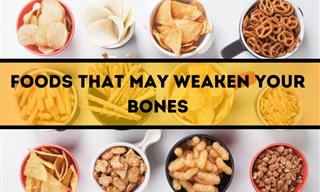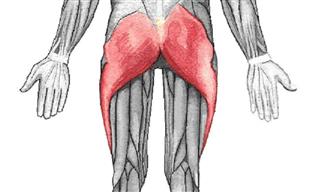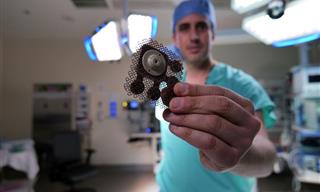1. Basil Seeds Can Have Anti-Aging and Anti-Cancer Properties
Several compounds contained in basil seeds were shown in studies to have cancer-fighting and cancer-preventative effects on the human body. In particular, basil seeds are rich in flavonoids, a group of antioxidants that were experimentally-proven to prevent oxidative stress and have anti-cancer properties.
Oxidative stress in the main reason behind aging, as well as a contributing factor of various degenerative diseases, particularly cancer.
Apart from flavonoids, basil seeds are also a great source of omega-3 fatty acids, which were suggested to have a preventative effect that lowered the likelihood of developing cancer, and particularly breast cancer.
Daily Intake: 1 tablespoon (13 g/ 05 oz) of basil seeds contain around 1.5 grams of an omega-3 fat called alpha-linolenic acid, which is all you need for the day.
In addition to that, there is even a 2016 test-tube study assessing and confirming the effectiveness of basil seed extract in treating cancer, during which bone cancer cells were exposed to and killed off by the extract. Needless to say, this is not imply that the consumption of basil seeds can be used to treat cancer, but it does illustrate the antioxidant effect of these quite potent seeds.
2. They Are a Healthy and Low-Calorie Replacement of Condiments and Sauces
When mixed with liquids, much like chia seeds, basil seeds develop a soft, transparent gelatinous coating, which make it a great thickening agent. This gel-like mixture doesn’t have any flavor, so you can use it many foods to add creaminess and thickness: salad dressings, jellies, yogurt, soups, mayonnaise and even a replacement for cream in ice cream.
There is even a study that showed that ice cream prepared with basil seed jelly was up to 40% creamier and contained less ice crystals than standard ice cream. Compared to usual thickening agents, basil seeds contain less calories, so the foods, drinks and condiments you will prepare with them will be leaner.
But that’s not it, they will be healthier, too, as basil seed are an amazing source of several essential nutrients, particularly calcium, magnesium and iron.
This is particularly beneficial to people who are on a meat and dairy-free diet, as only 1 tablespoon (13 g/ 0.5 oz) of basil seeds have 15% of the the required daily amount of calcium, as well as 10% of magnesium and iron, all of which can be difficult to achieve from other plant foods.
3. These Seeds Can Aid Digestion and Promote Gut Health
Basil seeds are especially rich in fiber, and all of us could benefit from more fiber in our diets, as it was estimated that 95% of Americans don’t get enough fiber in their diets, and the trends are similar worldwide. Just 1 tablespoon of seeds contains 7 g of fiber, which is 25% of the recommended daily intake.
Also, the seeds contain a type fiber called pectin, which was suggested to have prebiotic benefits, which means that it promotes the growth of beneficial gut bacteria. By promoting your gut microbiome, you can lower the level of inflammation and aid digestion in your gut.
4. Basil Seeds Help Maintain Mental and Brain Health
As we have mentioned previously, only 1 tablespoon of basil seeds contains your daily required amount of omega-3 fats, which are essential for brain health and may even help mitigate depression.
Brain Health and Cognition
The human brain consists of 60% fat, a significant amount of which is DHA, an omega-3 fatty acid. It is essential for healthy brain functioning, neurodevelopment, and cognition. In addition to that, insufficient quantities of it were linked to neurodegenerative disorders and cognitive problems.
Depression
Evidence suggests that omega-3 fatty acids can be related to mental health. Supplementing the treatment of depression, and bipolar depression in particular, may increase the effectiveness of the treatment. There is also evidence suggesting that more omega-3 fats in a diet can help prevent a depressive mood.
5. Basil Seeds Can Aid Weight Loss by Making You Feel Fuller Faster
When you eat a lot of fiber, particularly pectin, it can make you feel fuller. Pectin may also increase hormone levels that make you full longer, so it can help you curb your appetite.
6. The Minerals and Oils Contained in Basil Seeds May Help Normalize and Control Blood Sugar Levels
One study reported that people with type 2 diabetes who ate 10 g (3/4 tablespoon) of basil seeds in a glass of water after each meal for the duration of 1 month had a 17% lower blood sugar level compared to pre-treatment. There is also some evidence suggesting that alpha-linoleic acid contained in basil seeds may decrease the risk of developing type 2 diabetes.
7. The Omega-3 Fatty Acids Basil Seeds Contain Are Great at Lowering Inflammation in the Body
The antioxidants plentiful in basil seeds have a marked anti-inflammatory effect. Apart from that, omega-3 fats were shown to lower inflammation, even in chronic conditions, such as rheumatoid arthritis, as proven by one a 2011 review article.
8. Basil Seeds Promote Heart Health
Flavonoids and omega-3 acids contained basil seeds were shown to reduce the risk of heart disease risk. Apart from that, an experimental study showed that people who ate 7 teaspoons (30 g) of basil seeds every day were able to lower their cholesterol levels by 8%.
Finally, basil seeds are a source iron, which is vital for the production of red blood cells. Hence, it is possible to conclude that adding basil seeds to your diet can promote heart and cardiovascular health.
How To Add Basil Seeds to Your Diet?
Basil seeds have been used in Indian and East Asian cuisines for centuries, and it is quite easy to incorporate them into your diet. Basil seeds can be consumed in a variety of ways: as a topping, in drinks, or just soaked in water and eaten separately.
Because they are flavorless, you can easily add them to soups, puddings, smoothies and milkshakes without affecting their flavor. Finally, you can use the seeds soaked in water as a thickening agent instead of eggs when preparing desserts, such as muffins, pancakes, etc.
To replace 1 egg, use 1 tablespoon of basil seeds soaked in 3 tablespoons of water for 15 minutes. Though it is generally recommended to pre-soak the seeds in plenty of water for at least 15 minutes before eating them, it is unnecessary to do so in drinks or soups, which generally contain plenty of liquid anyway.
1 tablespoon of basil seeds will expand and yield around 1 cup (237 ml) of basil seed jelly. Here is an idea of a summer drink that uses basil seeds, which is both refreshing and super healthy. This recipe uses watermelons, but you can replace them with any other juice or fruit mixture and water.
Refreshing Watermelon Juice With Basil Seeds
 Go to BabaMail
Go to BabaMail





























